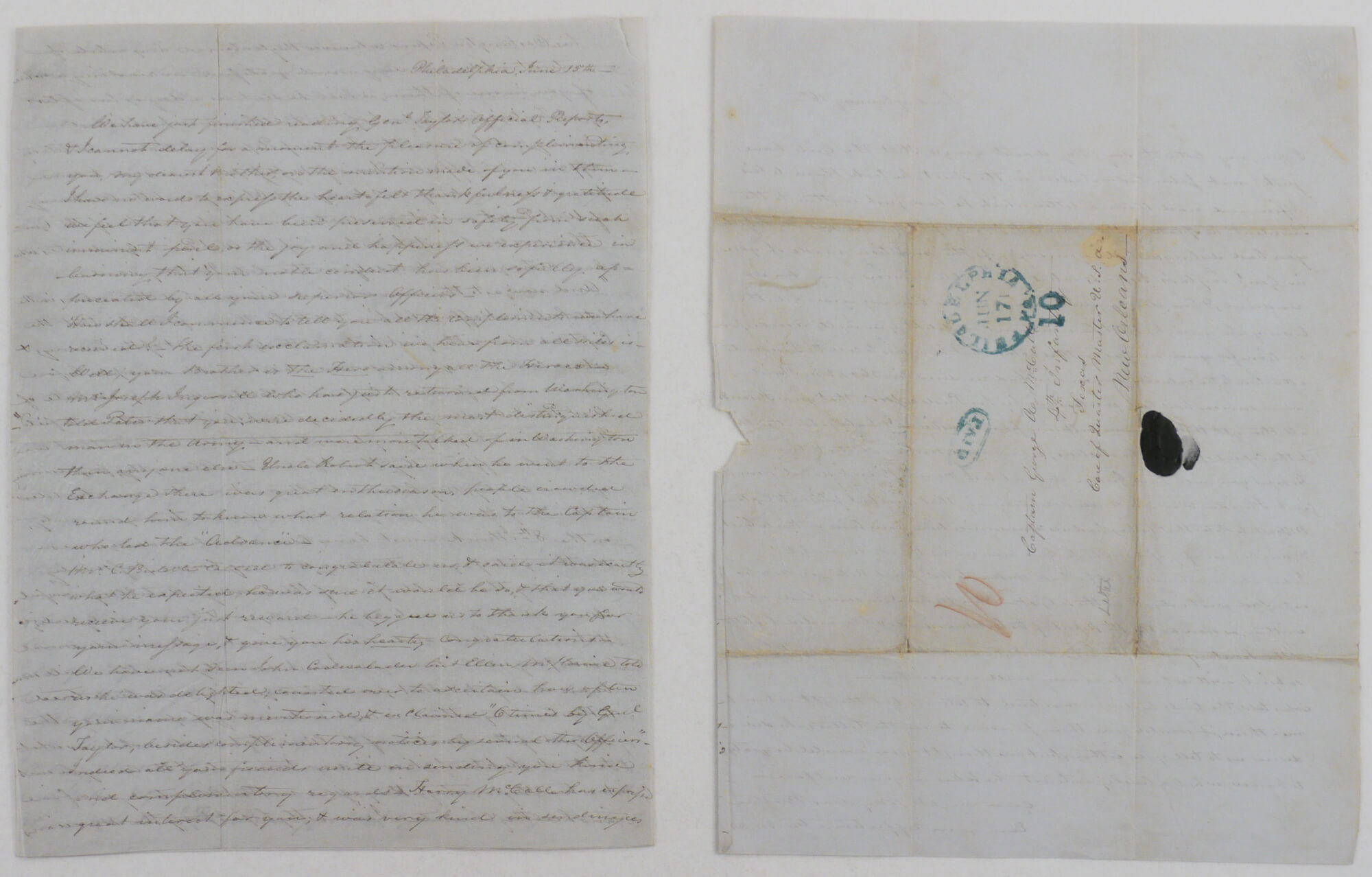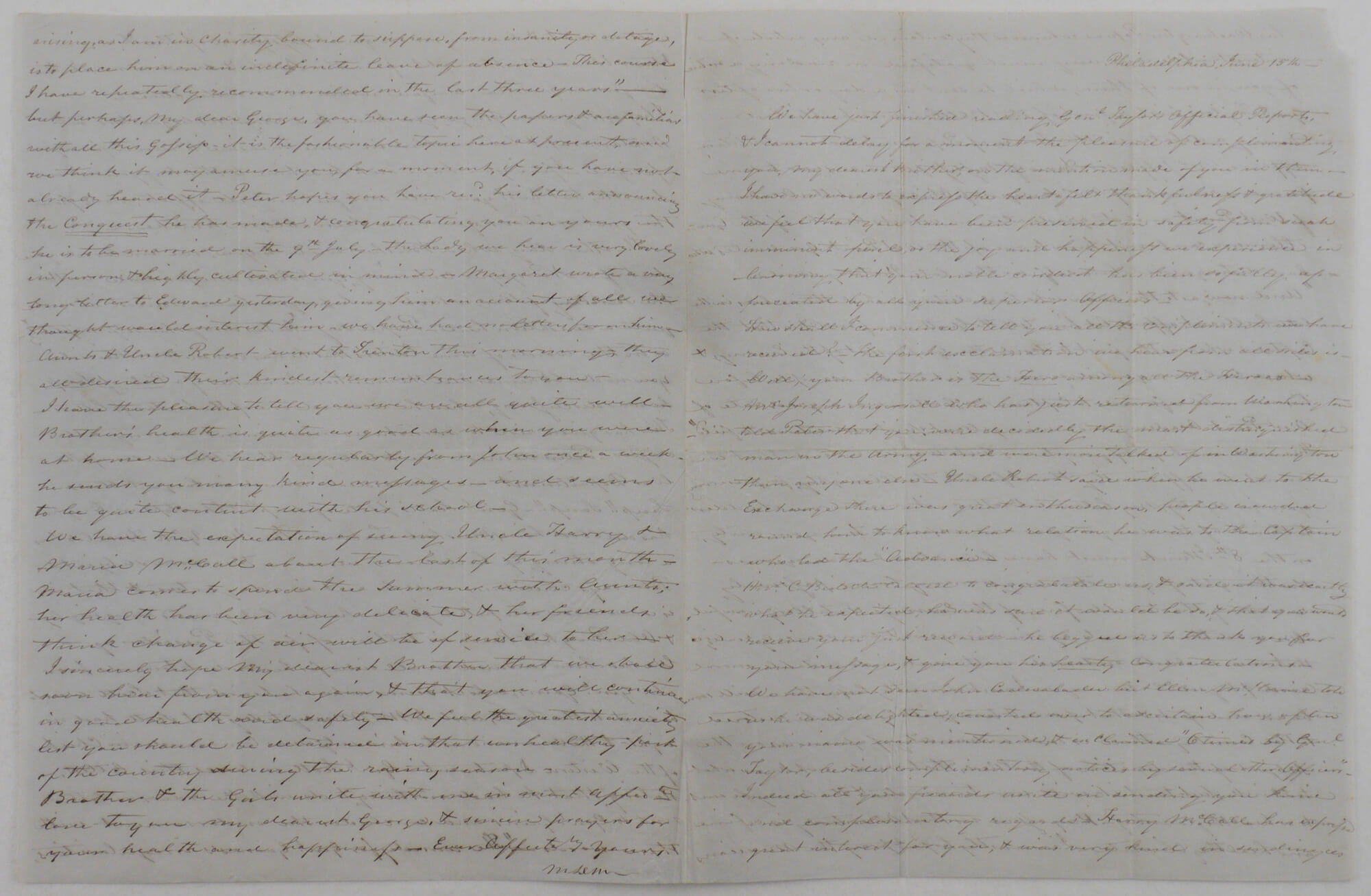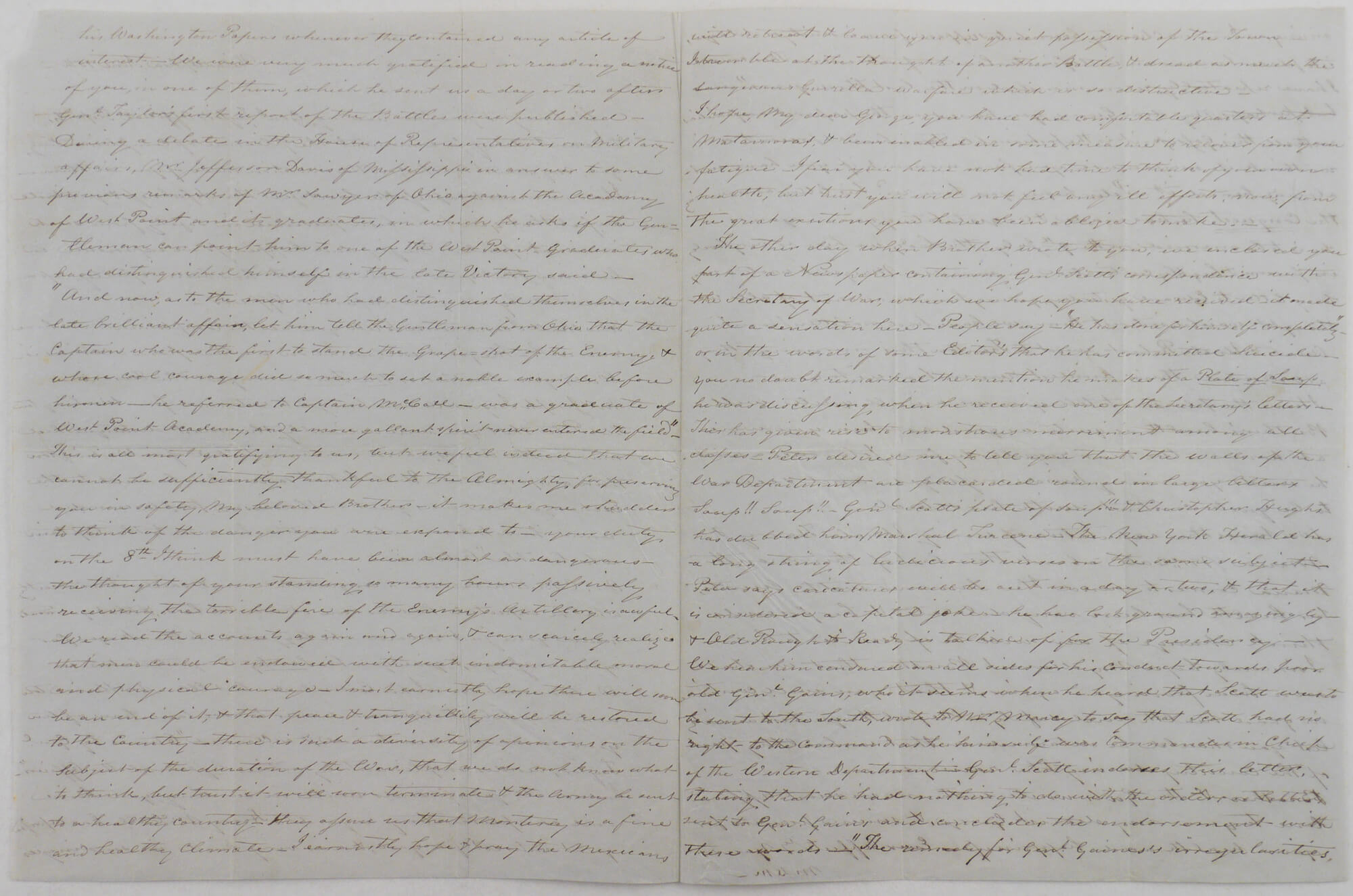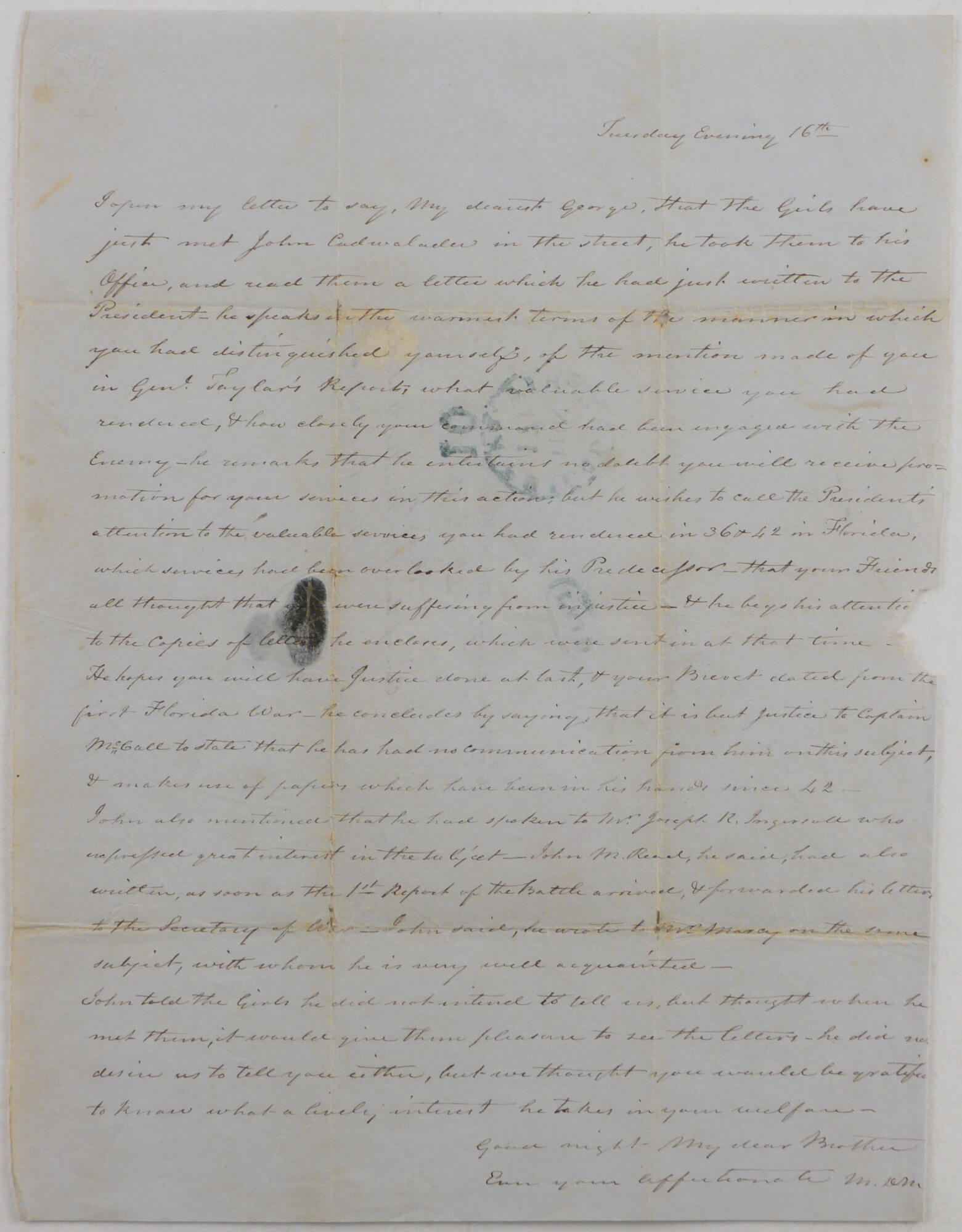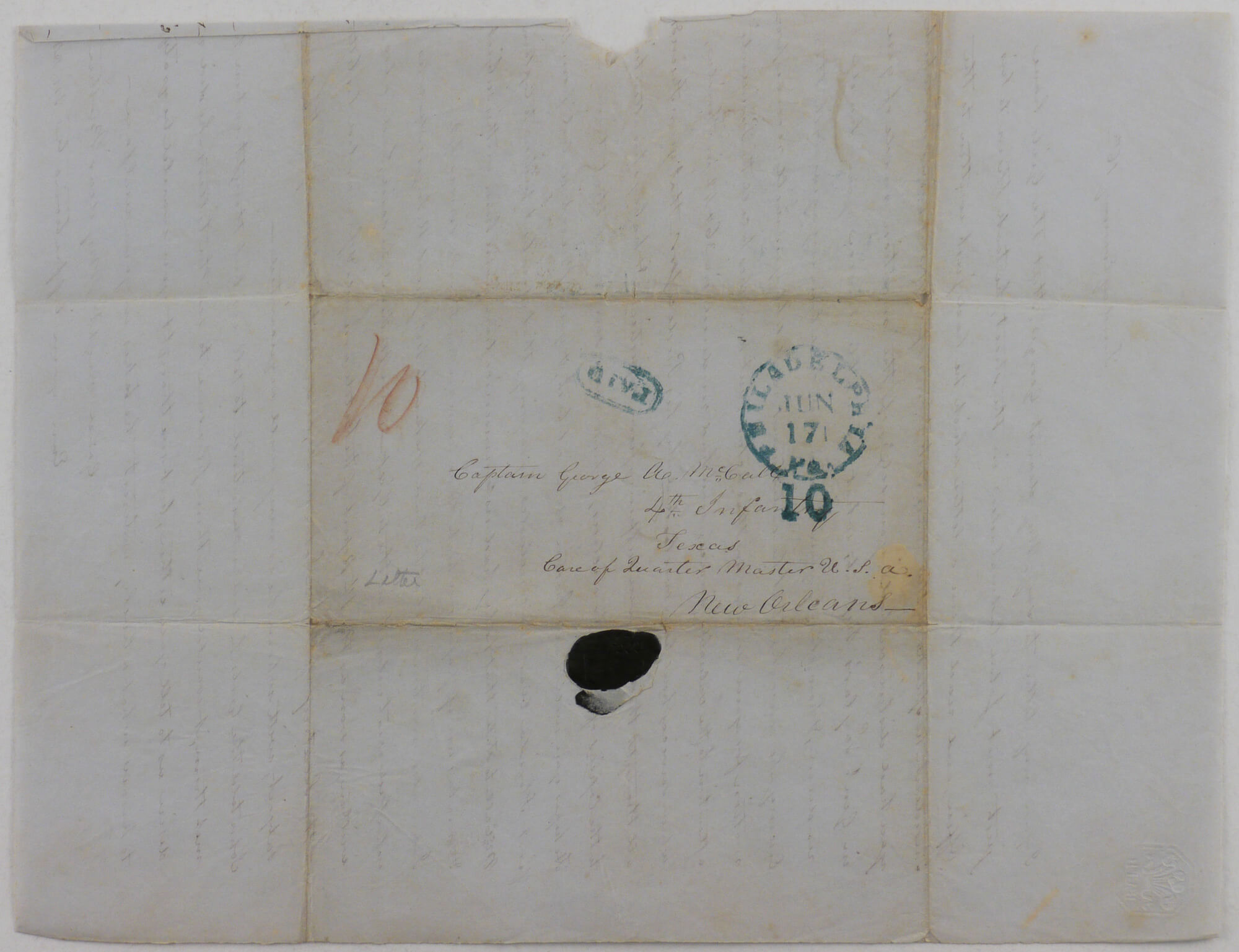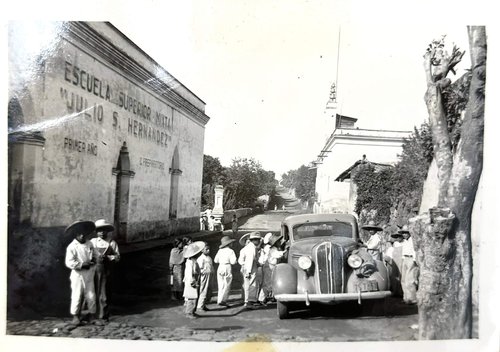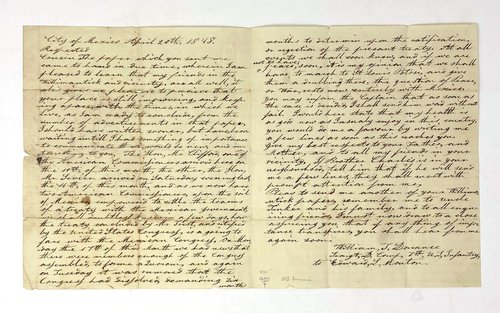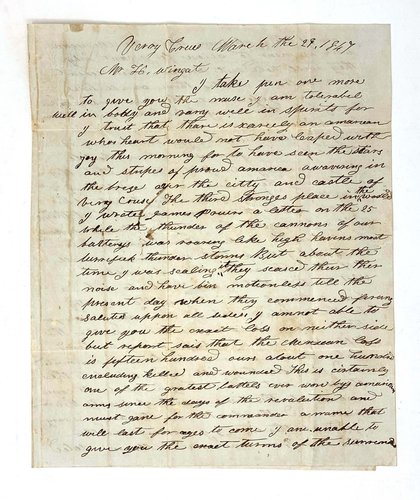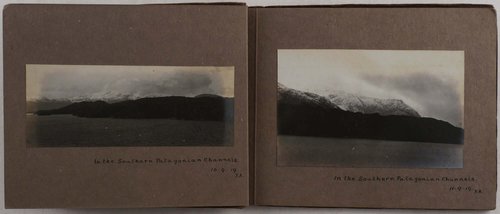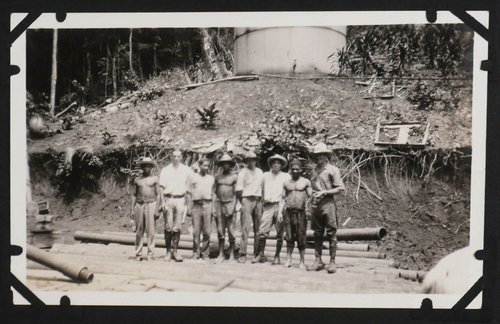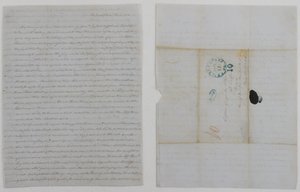
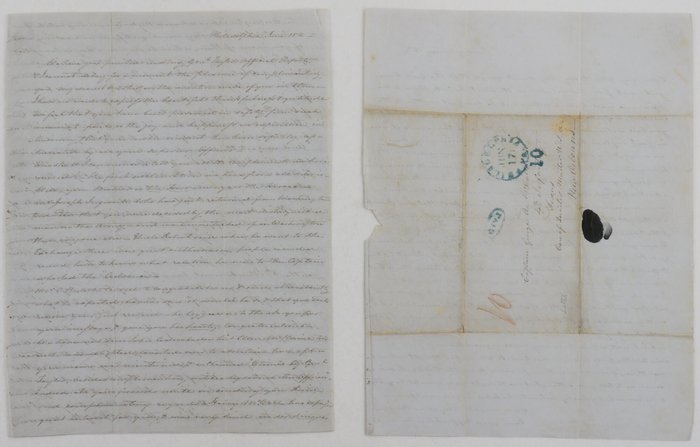
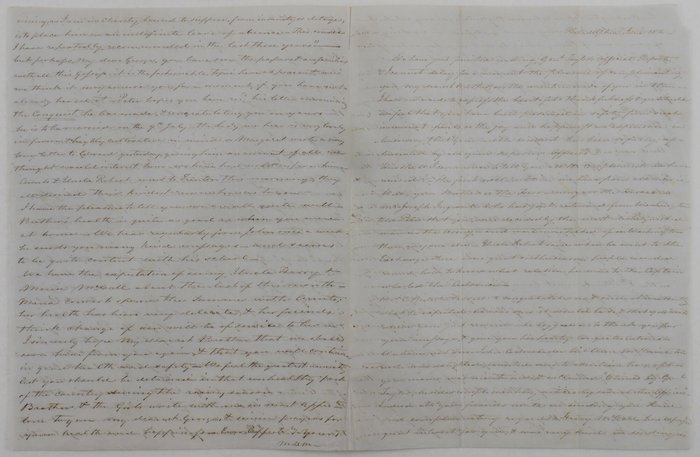
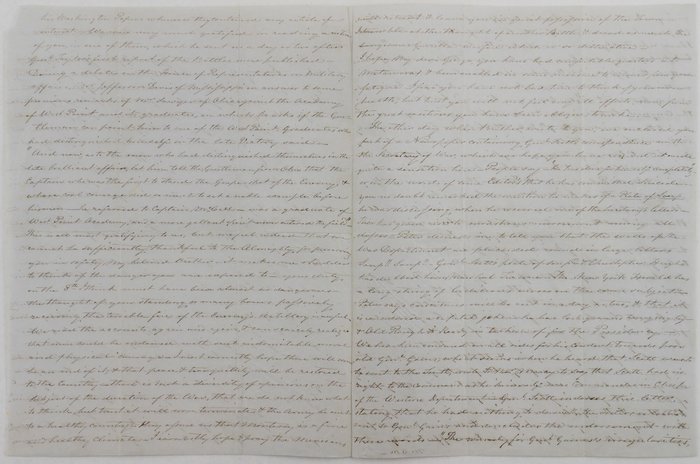
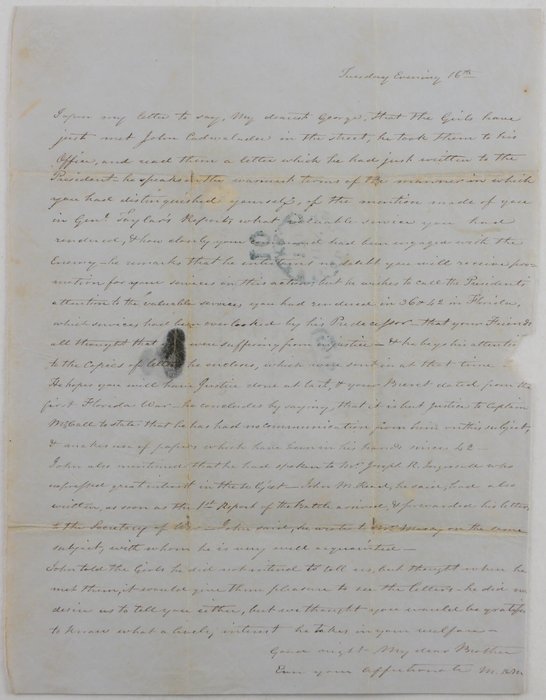
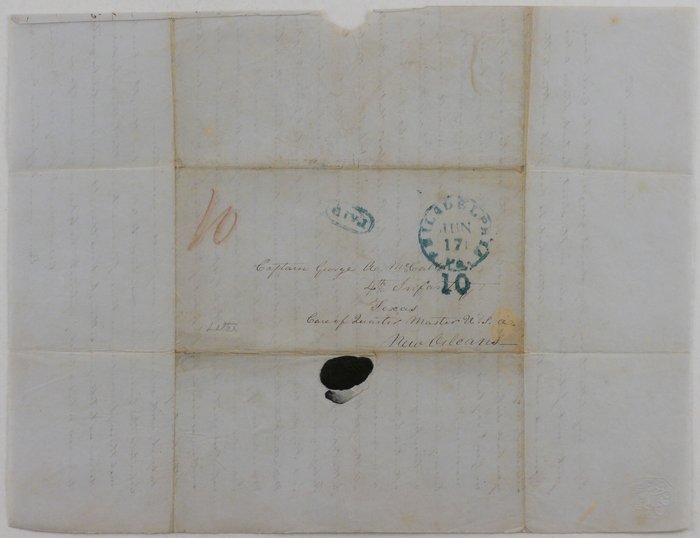
#M38
June 1846
Quarto (ca. 27x21 cm). A bifolium and a single leaf with 5 pp. of text. Brown ink on thin wove paper. Both leaves with blind-stamped papermaker’s monograms in the left upper corners. Addressed, stamped and sealed on verso of the last leaf. Fold marks, paper slightly age-toned, the last leaf with a minor loss on the right margin after opening, affecting several letters, but overall a very good letter written in a legible hand.
Historically significant original autograph signed letter, addressed to noted US military officer George A. McCall, who took part in the Florida War (Second Seminole War, 1835-1846), Mexican-American War (April 1846 – February 1848), and American Civil War (1861-1865). The letter was written by McCall’s elder sister Mary Dickinson McCall and was sent to the “4th infantry, Texas,” via the “care of a quarter master, U.S.A., New Orleans.” Written just a few weeks after the Battle of Palo Alto (May 8, 1846), the first major battle of the Mexican-American War, the letter talks about McCall’s heroism and leading role in the battle, and public praise and enthusiasm in Philadelphia after the release of General Zachary Taylor’s (1784-1850, the commander of the US forces during the war) official report. Mary McCall also talks about her brother’s “comfortable quarters in Matamoras,” his potential move to Monterrey and contemplates when the war will end. An extensive passage is dedicated to the anecdote about US General Winfield Scott and his letter to the Secretary of War, mentioning the “hasty bowl of soup,” which caused a series of jokes in the American press. The second part of the letter, dated “June 16” is dedicated to John Cadwalader’s letter to the American President (James K. Polk, in office: 1845-49), in which he asked to acknowledge McCall’s service during the “first Florida War.”
The letter also talks about or mentions several notable American public figures, who were McCall’s acquaintances, including Joseph R. Ingersoll (1786-1868, US Representative from Pennsylvania in 1841-49), “Mr. C. Biddle” (apparently, Charles J. Biddle, 1819-1873, participant of the Mexican-American War and US Representative from Pennsylvania’s 2nd district in 1861-63), W.L. Marcy (1786-1857, US Secretary of War in 1845-49), John M. Read Jr. (1797-1874, Attorney General of Pennsylvania in 1846), and others. The letter also contains family news, mentioning several members of the McCall family, including his cousins Peter McCall (1809-1880, the Mayor of Philadelphia in 1844-45) and John Cadwalader (1805-1879, US Representative from Pennsylvania in 1855-57, US District Judge for the Eastern District of Pennsylvania in 1858-79). Overall an interesting extensive source on the history of the early period of the Mexican-American War.
George Archibald McCall corresponded extensively with his friends and family. A collection of his letters reporting about the events of the Second Seminole and Mexican-American Wars, which possibly included his letters to Mary Dickinson (addressed as “My Dear M…”), was published under the title “Letters from the Frontiers, Written during the period of Thirty Years’ Service in the Army of the United States” (Philadelphia, 1868; see more).
Excerpts from the letter:
“We have just finished reading Genl. Taylor’s official reports & I cannot delay for a moment the pleasure of complimenting you, my dearest brother, on the mention made of you in them. I have no words to express the heartfelt thankfulness & gratitude we feel that you have been preserved in safety from such imminent peril or the joy and happiness we experience in learning that your noble conduct has been so fully appreciated by all your superior officers.
How shall I commence to tell you all the compliments we have received? The first exclamation we hear from all sides is: Well, your brother is the hero among all the heroes. Mr. Joseph Ingersoll who has just returned from Washington, told Peter that you were decidedly the most distinguished man in the army and were most talked of in Washington than anyone else. Uncle Robert said when he went to the Exchange there was great enthusiasm, people crowded round him to know what relation he was to the Captain who led the “Advance.” <…>
During a debate in the House of Representatives on military affairs, Mr. Jefferson Davis of Mississippi in answer to some previous remarks of Mr. Sawyer of Ohio against the Academy of West Point and its graduates, in which he asks if the Gentleman can point him to one of the West Point graduates who had distinguished himself in the late victory, said “And now as to the men who had distinguished themselves in the late brilliant affair, let him tell the Gentleman from Ohio that the Captain who was the first to stand the grapeshot of the enemy & whose cool courage did so much to set a noble example before his men – he referred to Captain McCall – was a graduate of West Point Academy, and a more gallant spirit never entered the field. <…>
It makes me shudder to think of the danger you were exposed to – your duty on the 8th I think must have been almost as dangerous – the thought of your standing so many hours passively receiving the terrible fire of the enemy’s artillery is awful. We read the accounts again and again & can scarcely realize that men could be endorsed with such indomitable moral and physical courage. I most earnestly hope there will soon be an end of it & that peace & tranquillity will be restored to the country. There is such a diversity of opinions on the subject of the duration of the war, that we do not know what to think, but I trust it will soon terminate & the army be sent to a healthy country. They assure us that Monterey is a fine and healthy climate. I earnestly hope & pray the Mexicans will retreat & leave you in quiet possession of the town. I tremble at the thought of another battle & dread as much the dangerous guerilla warfare, which is so destructive. I hope, dear George, you have had comfortable quarters at Matamoras & been enabled in some measure to recover from your fatigue. I fear you have not had time to think of your own health, but trust you will not feel any ill effects now from the great exertion you have been obliged to make.
The other day when brother wrote to you, we enclosed you part of a Newspaper containing Genl. Scott’s correspondence with the Secretary of War, which we hope you have received. It made quite a sensation here. People say - “He has done himself completely,” – or in the words of some editors, that he has “committed suicide”. You no doubt remarked the mention he makes of a Plate of Soup he was discussing when he received one of the Secretary’s letters. This has given rise to monstrous merriment among all classes. Peter desired me to tell you that the walls of the War Department are placarded round in large letters Soup!! Soup!! Genl’ Scott’s plate of Soup!! & Christopher Hughs has dubbed him “Marshal Tureen.” The New York Herald has a long string of ludicrous verses on the same subject. Peter says caricatures will be out in a day or two & that it is considered a capital joke. He has lost ground amazingly. <…>”
“Tuesday evening, 16th
I open my letter to say, my dearest George, that the girls have just met John Cadwalader in the street, he took them to his office and read them a letter which he had just written to the President. He speaks in the warmest terms of the manner in which you had distinguished yourself, of the mention made of you in Genl. Taylor’s reports, what valuable service you had rendered, & how closely your command had been engaged with the enemy. He remarks that he entertains no doubt you will receive promotion for your service in this action, but he wishes to call the President’s attention to the valuable service you had rendered in 36 & 42 in Florida, which services had been overlooked by his predecessor, that your friends all thought that you went suffering from injustice <…> He hopes you will have justice done at last & your brevet dated from the first Florida War. He concludes by saying that it is but justice to Captain McCall to state that he has had no communication from him on this subject & makes use of papers which have been in his hands since 42.
John also mentioned that he had spoken to Mr. Joseph R. Ingersoll who exposed great interest in the subject. John M. Read, he said, had also written as soon as the 1st report of the battle arrived & forwarded his letter to the Secretary of War. John said, he wrote to Mr. Marcy on the same subject, with whom he is very well acquainted <…>.”.

